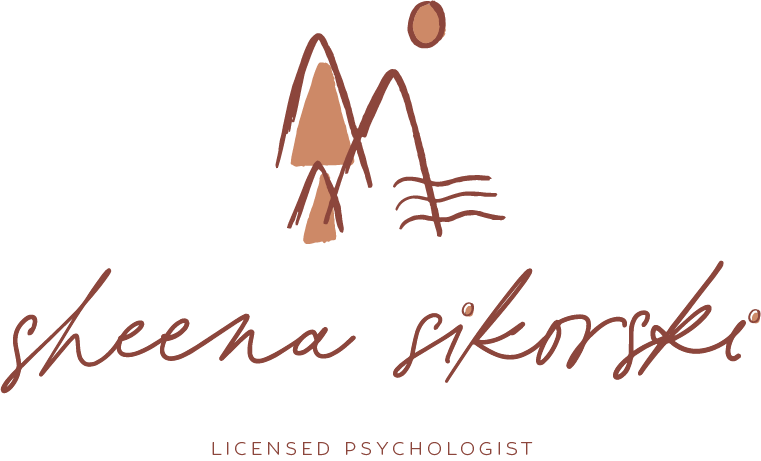.jpg)
We already know that perfectionism can lead to mental health struggles. And if social media feeds our perfectionist tendencies, then it’s only fair to assume that perfectionists can wind up in trouble on social media platforms.
Research has backed this theory up, as well. A 2017 study by the Royal Society for Public Health found that social media use is associated with increased rates of anxiety, depression, and poor sleep quality. Another 2017 study found that rates of depression and anxiety were actually higher than average for social media users.
And there’s evidence to suggest that a not-insignificant percentage of Americans actually meet the criteria for actual addiction to social media platforms.
Then there’s body image. Apps like Instagram and TikTok are full of images of traditionally-beautiful, fit-looking people. Filters and AI modifications can further “airbrush” away every imperfection, promoting beauty standards that are truly impossible to achieve in real life.
Seeing enough of this can impact anyone—but especially young people who are still developing their sense of self. A study published in the International Journal of Eating Disorders determined that exposure to images of idealized bodies on social media is linked to an increase in body dysmorphia and disordered eating.
But… why? Why are we so impacted by what we see?
Social Comparison Theory Meets Instagram, Etc…
For answers, we can turn to a theory first proposed by American psychologist Leon Festinger in 1954. His social comparison theory posited that individuals evaluate themselves based on comparisons to those around them—that this is a natural, human thing to do. And it’s largely how we develop our own sense of identity and self-worth.
But when Festinger first proposed this, our possibilities for comparison were much fewer. We were mostly restricted to family, friends, and the people we saw around town.
Now, social media lets us view and compare ourselves to others on a much larger scale. It provides us with a constant stream of images and updates from people across the globe. Individuals can easily compare themselves to others and feel inadequate when they perceive someone has more success, wealth, or beauty than they do.
But are the images someone posts an accurate representation of their life? We have little means of ascertaining the truth, leading to unrealistic expectations for our own lives—even subconsciously.
Managing Social Media and Perfectionism
That’s a lot of “bad stuff” about social media, isn’t it?
But we all know it’s not as easy as shunning social platforms forever. After all, they can bring us joy and even serve a greater purpose—like connecting with our loved ones or finding community around shared interests or social causes.
So it’s important to find balance in our social media use, to ensure we’re able to take advantage of the good parts of this technology without letting it impact us negatively, as much as possible.
Here are some strategies for managing social media use as a perfectionist:
Be Mindful of Your Time on Social Media
First, it’s important to be mindful and honest about the amount of time we spend on social media. It’s become a go-to for many of us, and we can pick up our phones to scroll without even realizing what we’re doing.
Set limits for how much time you spend on social media apps every day. Don’t frame it as a punishment for yourself—just let your awareness grow, and make decisions based on what you find.
Don’t Be Afraid to Take a Break
If you suspect that spending time on social media is ramping up your anxiety, depression, or attentional struggles, don’t be afraid to take a break. Install browser extensions that block the sites you frequent, and delete the apps from your phone. You can always download them again when you’re in a better headspace.
Curate a Positive Social Media Environment
Content curation is something we’ve all instinctively learned to do—it’s the process of choosing what to post or who to follow.
Use this newfound skill to your advantage! Unfollow or block any accounts that make you feel bad about yourself. This can include influencers, current events accounts, or even meme accounts that get overwhelming for you. Engage more with accounts that feel affirming or energizing.
Practice Healthy Habits Offline
Try to fill more of your time with healthy offline habits like movement you enjoy, foods that make your body feel good, and good sleep hygiene. These can give your mental health a boost in general and help you feel more able to protect your peace both online and off.
Be Kind to Yourself
The world can be a tough place, and in the 2020s, life moves fast. This can be particularly challenging for those of us who struggle with perfectionist tendencies—after all, we often feel like we can’t keep up, even when the pace is “normal.”
Practice having compassion for yourself, and embrace imperfection as much as you can. Try gratitude journaling or other mindfulness activities to be present and calm your anxiety.
You Can Be a Superhero… I Promise.
Remember that help is out there. If your struggles with perfectionism or the mental health pitfalls of social media use feel too overwhelming to tackle on your own, you can always reach out to a mental health professional.
Find someone who can help you turn your perfectionist and high-achieving tendencies into your superpowers. You won’t regret it!
Citations
https://www.rsph.org.uk/our-work/campaigns/status-of-mind.html
https://www.ncbi.nlm.nih.gov/pmc/articles/PMC4853817/
https://www.addictioncenter.com/drugs/social-media-addiction/
https://onlinelibrary.wiley.com/doi/abs/10.1002/eat.23198
https://dictionary.apa.org/social-comparison-theory









